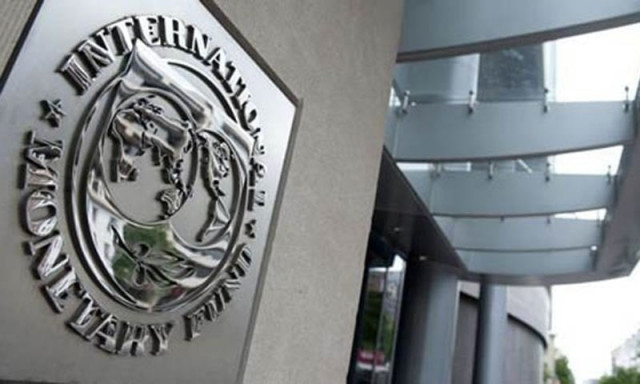Annual policy review: IMF cuts euro zone growth outlook
Expects 2016 growth to be 1.6%, down from 1.7%

In its report, the IMF said medium-term prospects for the euro zone were ‘mediocre’, constrained by crisis legacy problems from high unemployment, elevated public and private debt and deep-rooted structural weakness. PHOTO: AFP
In its annual policy review of the 19-country euro currency bloc, the IMF said it now expects 2016 growth of 1.6%, down from the previous forecast of 1.7%, while the 2017 growth forecast will drop to 1.4% from 1.7%previously.
In its annual policy review of the 19-country bloc, the IMF said a further global growth slowdown could derail the euro area’s domestic demand-led recovery, and further Brexit spillovers; the refugee surge, increased security concerns and banking weakness all could take their toll on growth.
But the IMF European Department Deputy Director Mahmood Pradhan said that if the separation negotiations dragged out between the EU and the UK and continued to cause risk reductions in financial markets, euro area growth would slow further.
“If that risk aversion is prolonged, we think the growth impact could be larger and at this point, it is very difficult to tell how long that period lasts,” said Pradhan. He added that the 1.4% growth scenario for 2017 assumes a relatively swift negotiation of a deal that would preserve full tariff-free access to the EU common market for Britain.
“Even this best-case scenario will cause a slowdown in investment and weigh on consumer and market confidence,” he said.
The IMF has not fully calculated the drag on growth that would result from a full arm’s-length relationship that would revert Britain’s EU status to basic World Trade Organization (WTO) tariff and access rules.
Pradhan said that would be a significant change for Britain, which sends some 40% of its exports to the EU. “If you went to the WTO option, just getting there would take a very long time - and that itself will be very damaging.”
In its report, the IMF said medium-term prospects for the euro zone were ‘mediocre’, constrained by crisis legacy problems from high unemployment, elevated public and private debt and deep-rooted structural weakness.
“As a result, growth five years ahead is expected to be about 1.5%, with headline inflation reaching only 1.7%,” the IMF said.
Published in The Express Tribune, July 10th, 2016.
Like Business on Facebook, follow @TribuneBiz on Twitter to stay informed and join in the conversation.



















COMMENTS
Comments are moderated and generally will be posted if they are on-topic and not abusive.
For more information, please see our Comments FAQ